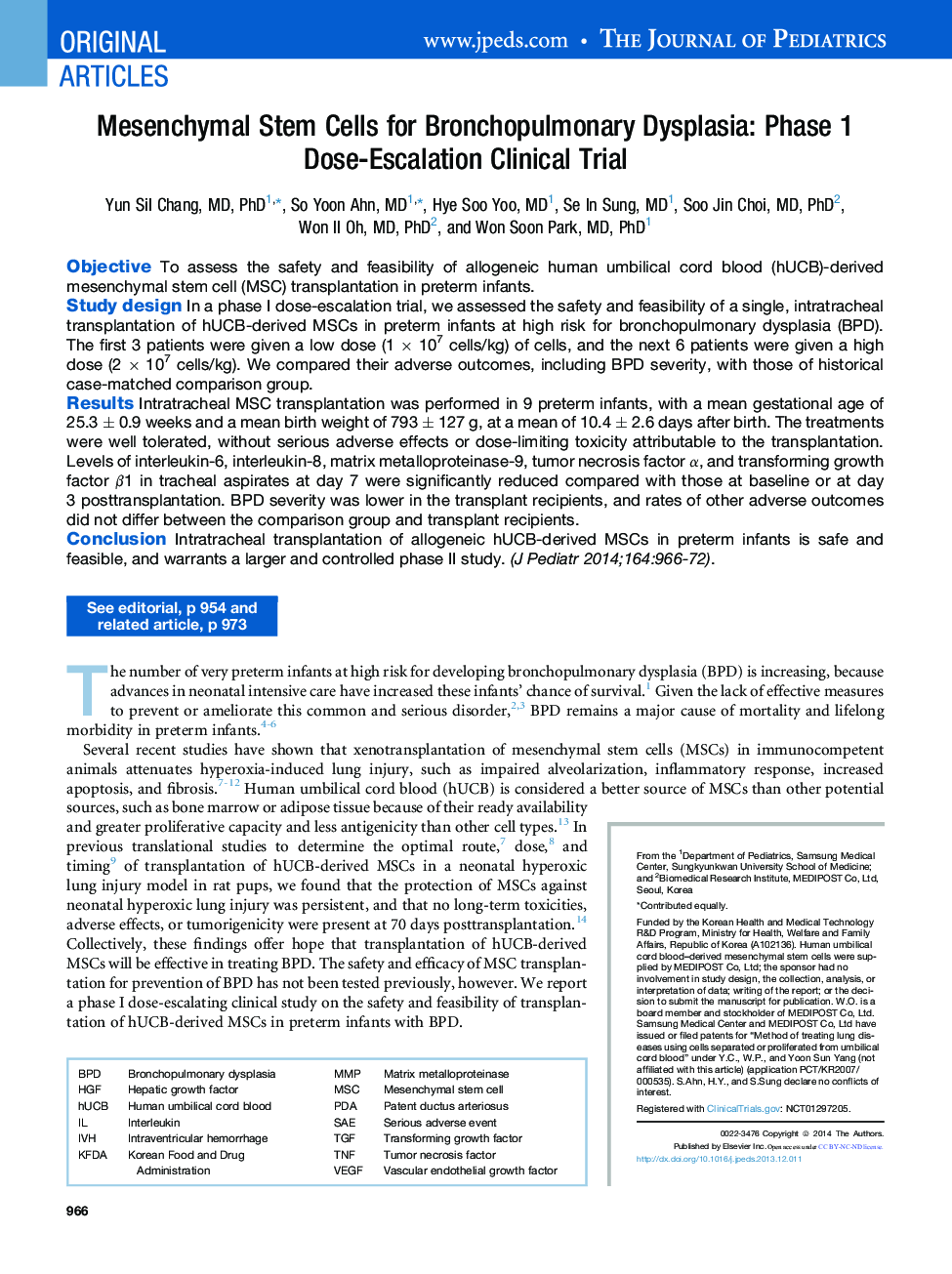| Article ID | Journal | Published Year | Pages | File Type |
|---|---|---|---|---|
| 6222132 | The Journal of Pediatrics | 2014 | 13 Pages |
ObjectiveTo assess the safety and feasibility of allogeneic human umbilical cord blood (hUCB)-derived mesenchymal stem cell (MSC) transplantation in preterm infants.Study designIn a phase I dose-escalation trial, we assessed the safety and feasibility of a single, intratracheal transplantation of hUCB-derived MSCs in preterm infants at high risk for bronchopulmonary dysplasia (BPD). The first 3 patients were given a low dose (1 à 107 cells/kg) of cells, and the next 6 patients were given a high dose (2 à 107 cells/kg). We compared their adverse outcomes, including BPD severity, with those of historical case-matched comparison group.ResultsIntratracheal MSC transplantation was performed in 9 preterm infants, with a mean gestational age of 25.3 ± 0.9 weeks and a mean birth weight of 793 ± 127 g, at a mean of 10.4 ± 2.6 days after birth. The treatments were well tolerated, without serious adverse effects or dose-limiting toxicity attributable to the transplantation. Levels of interleukin-6, interleukin-8, matrix metalloproteinase-9, tumor necrosis factor α, and transforming growth factor β1 in tracheal aspirates at day 7 were significantly reduced compared with those at baseline or at day 3 posttransplantation. BPD severity was lower in the transplant recipients, and rates of other adverse outcomes did not differ between the comparison group and transplant recipients.ConclusionIntratracheal transplantation of allogeneic hUCB-derived MSCs in preterm infants is safe and feasible, and warrants a larger and controlled phase II study.
